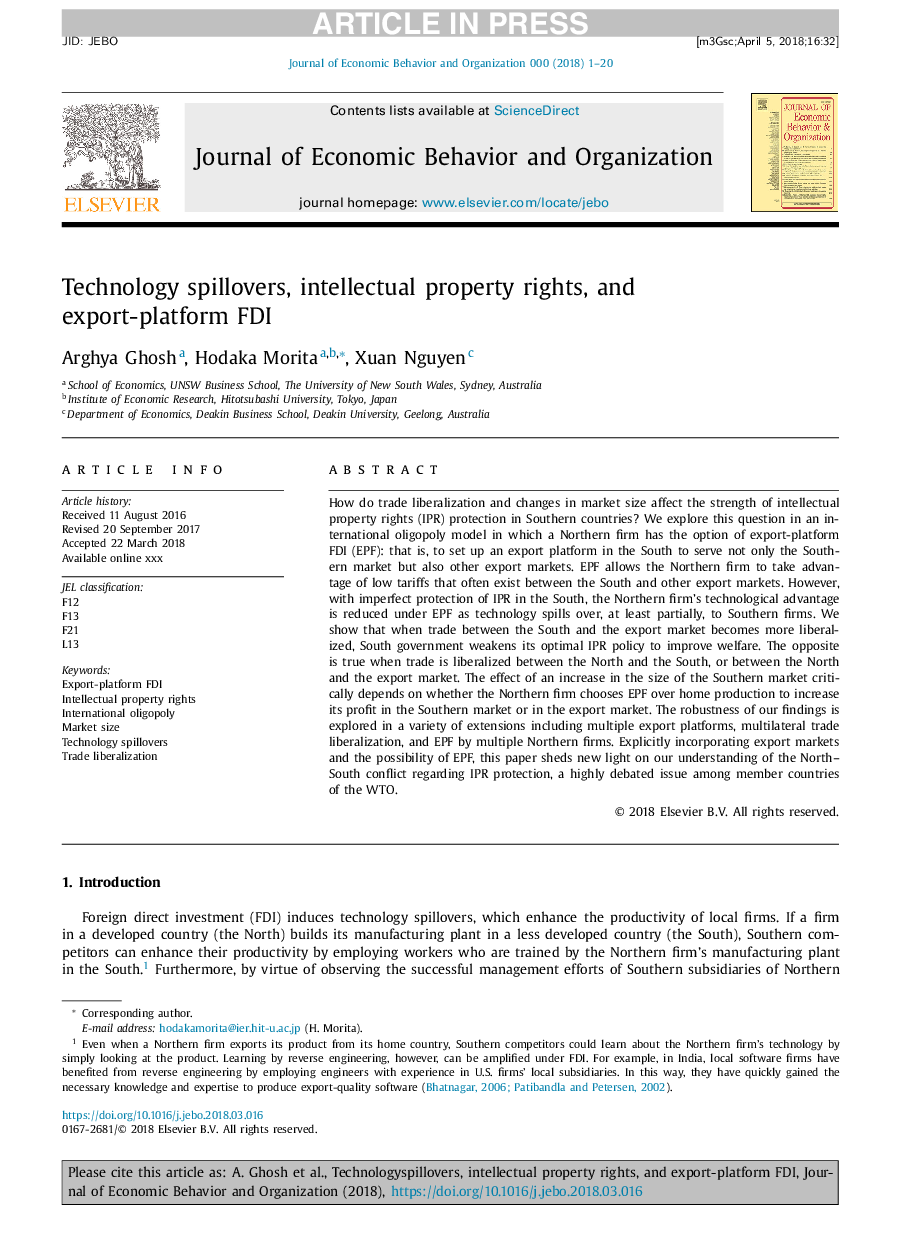| Article ID | Journal | Published Year | Pages | File Type |
|---|---|---|---|---|
| 7242477 | Journal of Economic Behavior & Organization | 2018 | 20 Pages |
Abstract
How do trade liberalization and changes in market size affect the strength of intellectual property rights (IPR) protection in Southern countries? We explore this question in an international oligopoly model in which a Northern firm has the option of export-platform FDI (EPF): that is, to set up an export platform in the South to serve not only the Southern market but also other export markets. EPF allows the Northern firm to take advantage of low tariffs that often exist between the South and other export markets. However, with imperfect protection of IPR in the South, the Northern firm's technological advantage is reduced under EPF as technology spills over, at least partially, to Southern firms. We show that when trade between the South and the export market becomes more liberalized, South government weakens its optimal IPR policy to improve welfare. The opposite is true when trade is liberalized between the North and the South, or between the North and the export market. The effect of an increase in the size of the Southern market critically depends on whether the Northern firm chooses EPF over home production to increase its profit in the Southern market or in the export market. The robustness of our findings is explored in a variety of extensions including multiple export platforms, multilateral trade liberalization, and EPF by multiple Northern firms. Explicitly incorporating export markets and the possibility of EPF, this paper sheds new light on our understanding of the North-South conflict regarding IPR protection, a highly debated issue among member countries of the WTO.
Keywords
Related Topics
Social Sciences and Humanities
Economics, Econometrics and Finance
Economics and Econometrics
Authors
Arghya Ghosh, Hodaka Morita, Xuan Nguyen,
